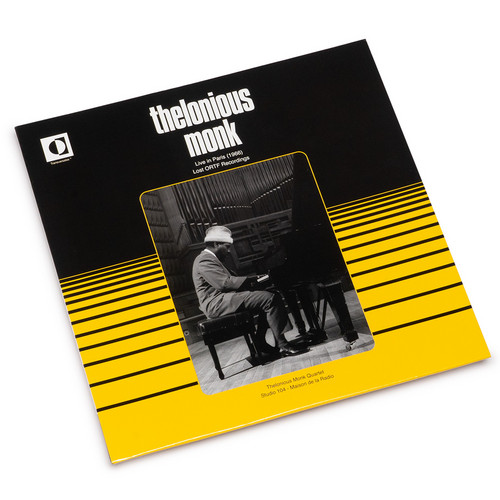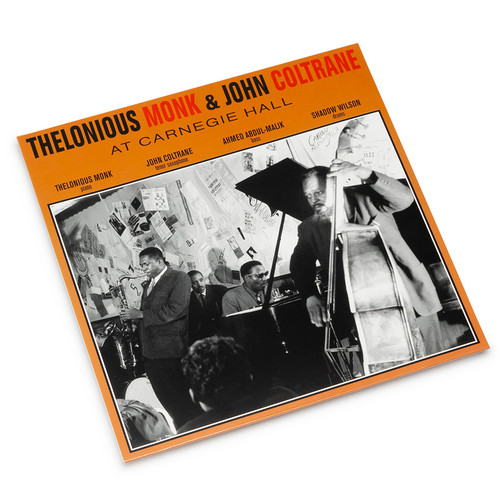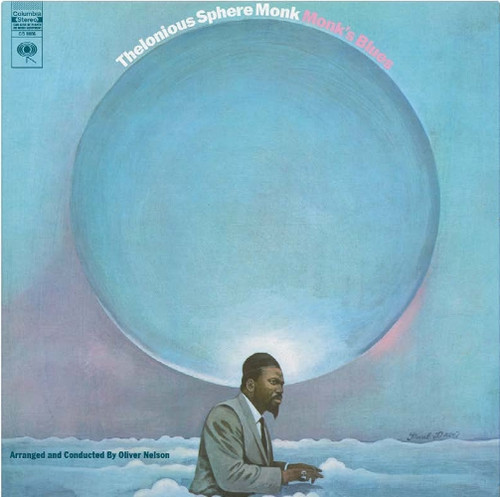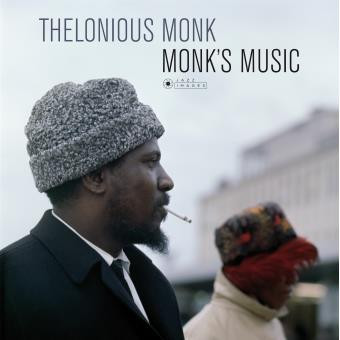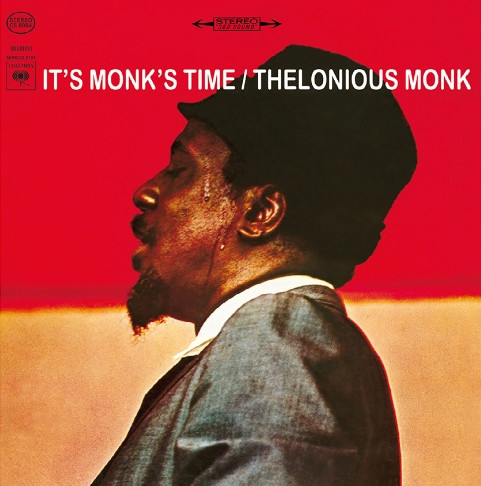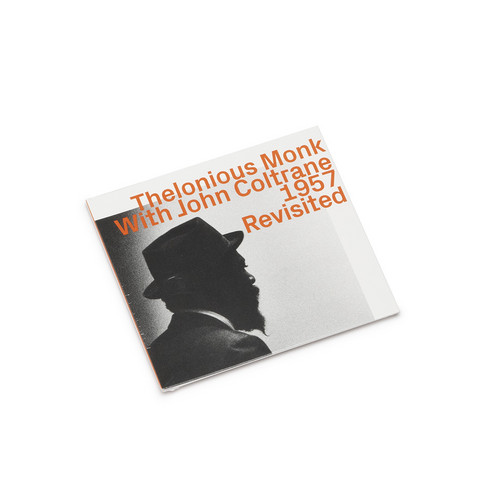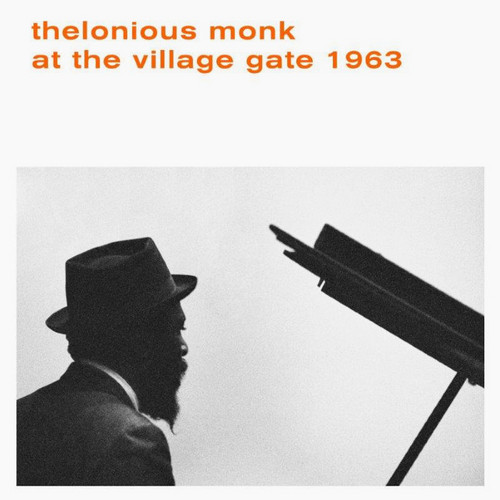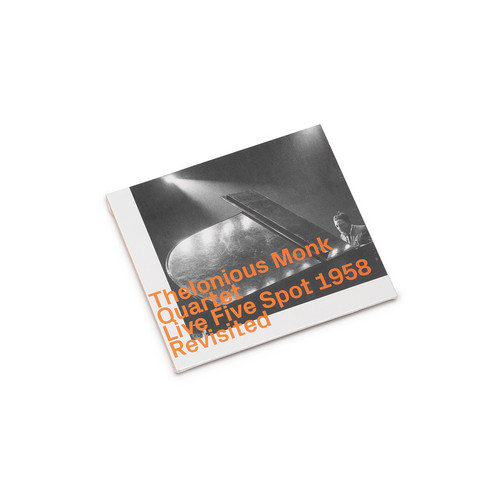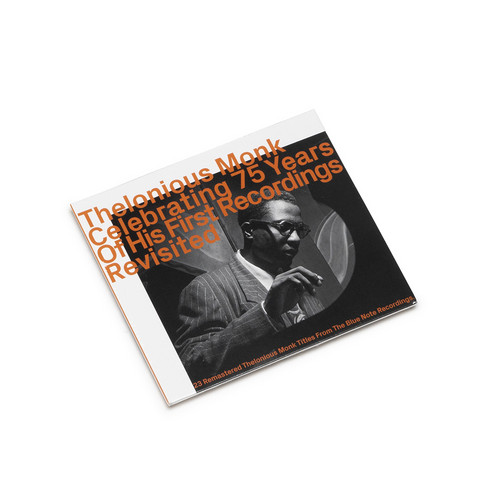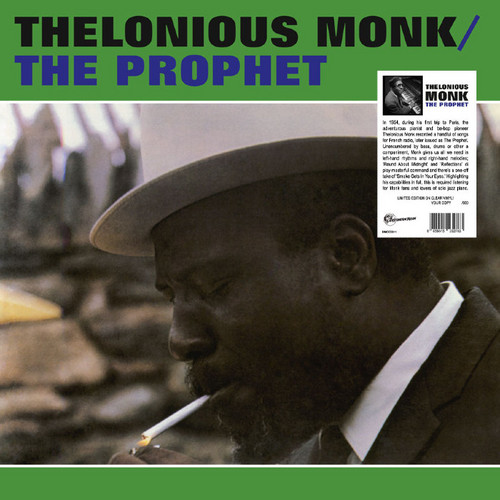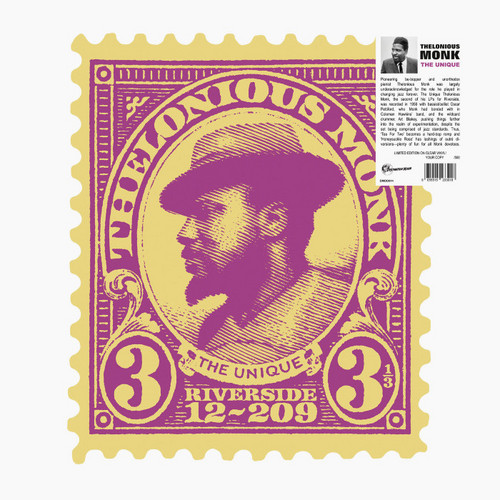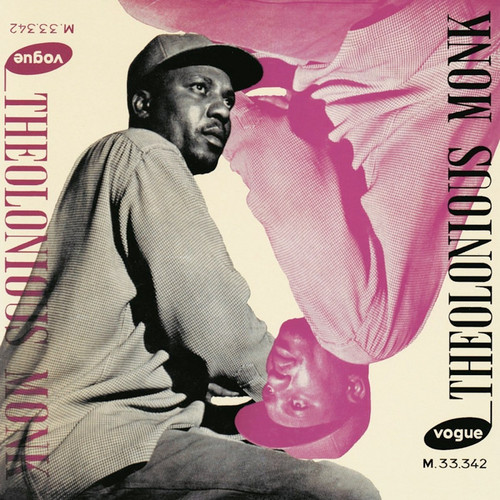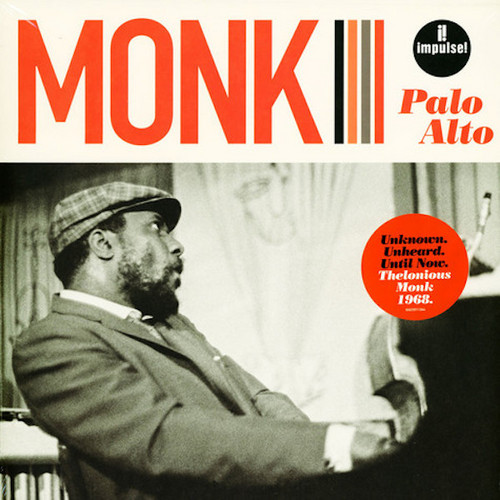Thelonious Monk
Live in Paris (1966)
A unique pianist and composer, Thelonious Monk (1917-1982) is one of the greatest jazz legends of all time. Thelonious is surrounded by his legendary quartet featuring Charlie Rouse (tenor saxophone), Larry Gales ( double bass) and Ben Riley (drums). First ever official release of this lost ORTF recording performed live in Paris at Studio 104, Maison de la Radio. Remastered from original tapes in high resolution.
At Carnegie Hall
Unearthed in 2005 by staff at the Library of Congress, At Carnegie Hall is an incredible performance delivered on 29 November 1957 by jazz giants Monk and Coltrane, together with bassist Ahmed Abdul-Malik and drummer Shadow Wilson. Far superior to that captured at the Five Spot five months earlier, At Carnegie Hall shows Coltrane finding his own sax sphere as Monk explores the limits of experimental excursions on the keyboard; Monk is in his element on ‘Crepuscule With Nellie’ and Trane shows hi…
Monk's Blues
Monk’s Blues is an album by Thelonious Monk, accompanied by a big band arranged and conducted by Oliver Nelson. Produced by Teo Macero, the album was recorded in Los Angeles by Monk‘s working quartet augmented by a group of top Hollywood studio musicians. The Monk Quartet included Monk on the piano, Charlie Rouse on Tenor Saxophone, Larry Gales on Bass and Ben Riley on the Drums. Additional musicians a.o. Tom Scott, Buddy Collette, Bobby Bryant and Conte Candoli. Monk’s Blues is available as a l…
Monk's Music
*2024 stock* "Monk’s Music" is an important album because it is one of the very few testimonies of Thelonious Monk’s band at the time John Coltrane was a regular member. It also showcases a second tenor sax, that of the legendary Coleman Hawkins, who in the 1940s featured Monk as the pianist of his band, and with whom Monk made his first studio recordings.
The album received a five-star rating in Down Beat, with Dom Cerulli stating that, “Throughout, Monk is the dominant force. The music, whethe…
It's Monk's Time
It’s Monk’s Time is probably the most appropriate title for a Thelonious Monk album. The fact that he was on the cover of Time Magazine in February of that year (1964) shows how important the jazz composer and pianist was. It is also an essential part of his discography with the impressive jazz classic “Stuffy Turkey” and the amazing interpretation of “Nice Work If You Can Get It”, originally composed by George Gershwin. Monk recorded the album together with Butch Warren, Ben Riley, Charlie Rous…
Thelonious Monk With John Coltrane 1957 (Revisited)
Temporary Super Offer! “Working with Monk brought me close to a musical architect of the highest order. I felt I learned from him in every way – through the senses, theoretically, technically. I would talk to Monk about musical problems and he would sit at the piano and show me the answers just by playing them.“ – John Coltrane
At The Village Gate 1963
The jazz giant Thelonious Monk is here featured in this live recording in New York. Monk is in his best form during this ‘Village Gate’ gig, along with famed session men accompanying him here and forming this solid Quartet - namely, Charlie Rouse on Tenor Saxophone, John Ore on the bass and Frankie Dunlop on the drums. The album features three Monk’s originals (“Rhythm-A-Ning”, “Evidence”, “Jackie-ing”) and two jazz standards (“I’m Getting Sentimental Over You” and the immortal “Body And Soul” …
Thelonious Monk Quartet: Live Five Spot 1958, Revisited
Temporary Super Offer! Johnny Griffin came to Thelonius Monk with a reputation as a speed demon – double-timing the tempo was his default mechanism, elaborating melodies with a mixture of mellow swing and complex bop phrasing. Their contrasting nature – Griffin’s fluid extravagance and Monk’s percussive dissections – intensified by Roy Haynes’ forceful divisions of the beat, generate a tension unlike any of Monk’s subsequent groups' – Art Lange
Celebrating 75 Years Of His First Recordings
Temporary Super Offer! Thelonious Monk devised a new theoretical basis for his compositional aesthetic, an unorthodox, deconstructed and reinvented pianistic approach that defined his music’s unique rhythmic and melodic parameters. The piano was the vehicle of expression for his compositional mindset. - Art Lange
The Prophet
In 1954, during his first trip to Paris, the adventurous pianist and be-bop pioneer Thelonious Monk recorded a handful of songs for French radio, later issued as The Prophet. Unencumbered by bass, drums or other a companiment, Monk gives us all we need in left-hand rhythms and right-hand melodies; ‘Round About Midnight’ and ‘Reflections’ di play masterful command and there’s a one-off take of ‘Smoke Gets In Your Eyes.’ Highlighting his capabilities in full, this is required listening for Monk fa…
The Unique
Pioneering be-bopper and unorthodox pianist Thelonious Monk was largely underacknowledged for the role he played in changing jazz forever. The Unique Thelonious Monk, the second of his LPs for Riverside, was recorded in 1956 with bassist/cellist Oscar Pettiford, who Monk had bonded with in Coleman Hawkins’ band, and the wildcard drummer, Art Blakey, pushing things farther into the realm of experimentation, despite the set being comprised of jazz standards. Thus, ‘Tea For Two’ becomes a hard-bop …
Piano Solo
Raw and angular as they sound, these nine pieces are utterly compelling. Without supporting bass and drums, Monk draws on his early influences to lay down left-hand rhythm patterns, including a kind of off-centre boogie-woogie. But it’s the authority and completeness of each performance that is so impressive, not to mention the considerable technique involved. An excellent booklet provides the background
Palo Alto
* First Release. Includes 12-page 8" x 8" booklet with photos, essays and credits, as well a 12-page 5.25" x 8.25" replica concert program by the Palo Alto High School International Club, and 16.5" x 10.5" replica concert poster. * Palo Alto is a previously unknown and unreleased live Thelonious Monk recording. After the assassination of Dr. Martin Luther King, Jr. in 1968, racial tensions across the country rose. Palo Alto, a largely white college town in California, was not immune to the event…
